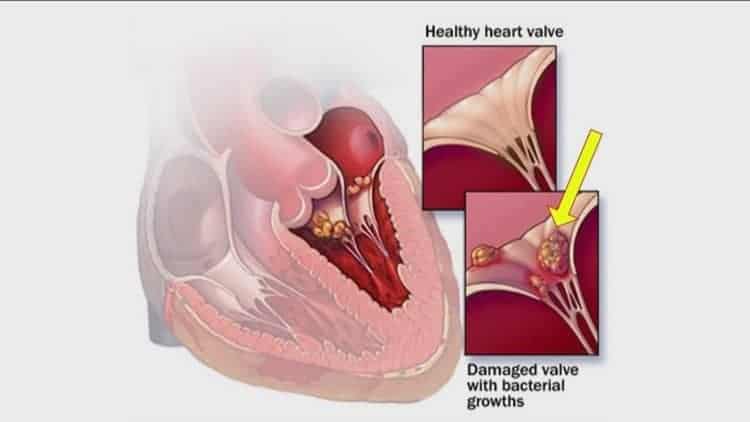Do you feel tired and short of breath? Have you been noticing unusual chest discomfort? These symptoms could be caused by Nonbacterial Thrombotic Endocarditis that could lead to risks like stroke or organ damage. Capitol Cardiology Associates is here to explain conditions like NBTE so you can feel confident in managing your heart health. Keep reading to find out what NBTE is, how it’s diagnosed, and how it’s treated so you can stay empowered and know when it’s time to see a heart doctor.
What Is Nonbacterial Thrombotic Endocarditis?
NBTE is a condition that involves the formation of small, sterile clots on the valves of the heart. Unlike infective endocarditis, where bacteria or fungi are involved, NBTE is not caused by infection. Instead, these clots consist of platelets and fibrin that form due to issues like abnormal blood clotting or underlying systemic diseases. This condition is sometimes associated with cancer, autoimmune disorders, or other illnesses that create a hypercoagulable state, where blood clots more easily than it should. While NBTE itself doesn’t usually cause serious damage to the heart, if a clot detaches from the valve, it can travel through the bloodstream to other parts of the body and potentially cause a stroke, pulmonary embolism, or damage to vital organs. NBTE can sometimes fly under the radar because of its subtle or absent symptoms, which makes it even more important to understand its risks so you can seek timely care.
Symptoms That Shouldn’t Be Ignored
Because NBTE can develop silently, it’s easy to dismiss early warning signs. However, certain symptoms should prompt a visit to your cardiologist:
- Persistent Fatigue: Feeling constantly tired despite adequate rest could be an indication of a cardiovascular issue.
- Shortness of Breath: If you find yourself winded during activities that never used to be a problem, it’s worth paying attention.
- Chest Pain or Discomfort: While not always severe, lingering chest sensations should never be ignored.
- Neurological Symptoms: Sudden weakness, numbness, or speech difficulties could point to emboli traveling to the brain.
What Puts You at Risk?
Certain groups are more likely to develop NBTE because of underlying health conditions that increase blood clotting or inflammation. Risk factors include:
- Cancer: Individuals with advanced cancer, particularly adenocarcinomas of the pancreas, stomach, or lung, are at increased risk. The cancer can trigger clot formation due to changes in the blood’s clotting ability.
- Autoimmune Disorders: Diseases like systemic lupus erythematosus and antiphospholipid syndrome can make the body prone to forming clots.
- Chronic Illness: Conditions like kidney disease or inflammatory bowel disease may also play a role in NBTE development.
- Recent Surgery or Prolonged Immobilization: Blood tends to pool and clot during extended periods of inactivity, which increases the likelihood of thrombus formation.
If you’re managing any of these conditions, partnering with a heart doctor for regular monitoring can help reduce complications and keep your heart health in check.
Diagnosing NBTE
Nonbacterial Thrombotic Endocarditis is challenging to diagnose because it doesn’t always present with obvious symptoms. However, a detailed evaluation by a cardiologist can pinpoint the issue.
- Medical History and Risk Assessment: Your doctor will first review your medical history and look for risk factors like cancer, autoimmune disorders, or recent surgeries.
- Imaging Tests: An echocardiogram is the gold standard for detecting NBTE. This imaging test provides detailed visuals of the heart valves, which makes it easier to spot thrombi.
- Blood Tests: While NBTE doesn’t involve infection, blood tests can help rule out other conditions, like infective endocarditis or clotting disorders.
How Is NBTE Treated?
Once NBTE is diagnosed, the treatment plan typically involves addressing the cause and preventing further clot formation. Some important components of treatment include:
- Blood Thinners: Medications like warfarin or heparin are commonly prescribed to prevent new clots and reduce the risk of existing thrombi breaking free.
- Treating Underlying Conditions: If NBTE is linked to cancer or an autoimmune disorder, managing that primary condition becomes a focus for treatment. Effective cancer therapies or medications to control autoimmune activity can help reduce clotting risks.
- Monitoring: Regular follow-ups with a heart doctor will make sure that treatment is working and that no new complications have arisen.
Are You Searching for a Local Heart Doctor?
Nonbacterial Thrombotic Endocarditis is intimidating, but it’s manageable with the right care. Capitol Cardiology Associates specializes in providing compassionate care for conditions like NBTE and beyond. Whether you’re concerned about specific symptoms or want to stay ahead of potential heart health challenges, our team is here to support you every step of the way. Schedule your consultation today.




.webp)

